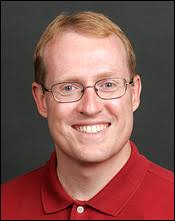This is the fourth and final episode on the fundamentals of Software Architecture. We talk mainly about architectural styles and patterns, as introduced in the POSA 1 Book. We also discuss a little bit the process of actually using those patterns...
In this Episode, we talk to Michael Stal, a Senior Principal Engineer at Siemens Corporate Technology, POSA 1 and 2 Co-Author and Editor of the german JavaSpetrum magazine. Since Michael's core focus is middlware, much of our discussion centered...
In this episode Michael and our guest Prashant Jain talk about patterns for resource management. Efficient management of resources is critical in the execution of any kind of software. Ranging from embedded software in a mobile device to software in...
In this episode we talk with Doug Schmidt. Doug is a professor of computer science at Vanderbilt University and a well-respected authority in the fields of middleware, patterns and model-driven development. In this interview we talk about these...
In this episode Michael and Markus talk about patterns. Starting with some of their "most used" patterns, they go into some detail about the history of patterns. They then discuss the various pattern forms as well as some misconceptions about...




